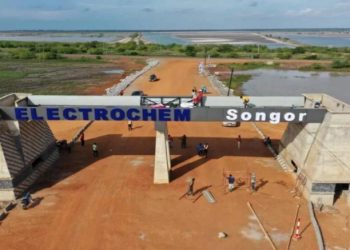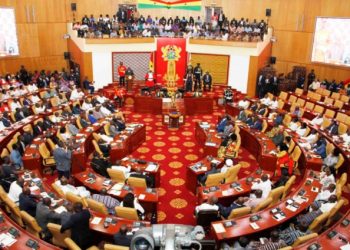The Geostrategic importance of the Horn of Africa makes any issue regarding instability in the region a concern for global hegemons. The commercial need for protecting such a trade route is in the best interest of all parties who hold both political and strategic interests in the Red Sea politics. The Horn of Africa has suffered a series of conflicts, both intra and inter-state wars, over the past half century. The scramble for access to the Red Sea has become the new normal for international powers in the global system after the Cold War.
This makes the case of Somalia and its threat of conflict with Ethiopia worth engaging. The year 2024 began with the signing of a Memorandum of Understanding (MOU) between Ethiopian Prime Minister Abiy Ahmed and Somaliland President Muse Bihi Abdi. A key component of the deal is to lease 12 miles of the coastlands of Somaliland to Ethiopia for military and commercial purposes for 5 decades in return for the recognition of Somaliland as a state, which will be the first time such recognition of the breakaway region of Somaliland from Somalia to be recognized by any internationally recognised state (The Conversation, 2024). Somalia condemned the arrangements made by Ethiopia and Somaliland and has called for the reversal of the deal, stressing that Somalia perceives the deal as a breach of sovereignty, which may imply that any military activity that may be undertaken by Ethiopia in the demarcated area as indicated in the MOU will be considered an act of aggression (Aljazeera, 2024).
Strategic importance of the Horn of Africa
Somalia ranks as one of the world’s most strategically important countries because it connects the Indian Ocean to the Red Sea and the Gulf of Aden (Belay, 2019). The presence of ten global powers from different countries emboldens the importance of the Horn of Africa to global political discourse. The commercial importance of the region to global trade networks and the regional security complex it poses, as well as the activities of Al-Shabab and other terrorist networks in the region including piracy off the Coast of Somalia gives credence to the complex nature of the Horn of Africa. The coastal part of the Horn of Africa covers the Red Sea, which stretches from Sudan, Eritrea, Djibouti and Somalia and has turned into a new geostrategic area in Africa being scrambled by superpower states and emerging powers in the international system. The Horn has become an interconnected complex of military bases (Getahun, 2023).
The stability of Somalia and its neighbour, Ethiopia, has the interests of all major parties relevant to the international system at stake.
This article analyzes the friction between Somaliland and Somalia, the role of Ethiopia in the emerging conflict in Somalia, and the implications it has for a potential global conflict for world superpowers assessing the nexus between rivalry among major powers interconnected to the escalation of the tensions. This article further provides recommendations for averting the impending rivalry and mechanisms for maintaining peace and security in the Horn of Africa and the stability of the Red Sea.
Somalia and Somaliland Impasse
Somalia is an East African state that shares borders with Djibouti, Kenya and Ethiopia. Somalis have a homogenous language and religion yet are largely divided into patrilineal leanage (clans), which forms the basics of the Somali social structure and organisation (Belay, 2019). Somalia gained its independence in 1960 and has had a mixture of both democratic and military rule from the 1960’s through to 1991, when General Mohammed Siad Barre’s regime was overthrown, which blew the state into a long period of clan war, which deteriorated the country into a state of collapse (Ajulu, 2004). Somalia has faced recurring political instability, insecurity, poverty and widespread famine. This also contributed to the breakaway of Somaliland and Puntland (Belay, 2019). The involvement of international actors in a series of negotiations led to the formation of the Trans-National Government (TNG) in 2000. In 2004, the TNG was replaced by the Transitional Federal Government (TFG), which was also later replaced by the Somali Federal Government (SFG) in 2012. The historical societal structure of Somalia contributes to the inability of all Somalis to subject themselves to a single ruler. The historical, social and political organisation of the Somalis was acephalous due to the traditional nomadic pastoralist nature of the Somalis (Schlee, 2018). The social organizational structure of the Somali people has been largely governed by clannism and kinship, which has infiltrated into their body politics till date (Schlee, 2018). The identity politics of Somalia are deeply rooted in their current political system. This has also contributed to the sharp societal differentiation and divergent political aspirations of Somalia and Somaliland.
Somaliland Breakaway
A major factor that led to the breakaway of Somaliland from Somalia is ingrained in their colonial history (Banda, 2016). The entirety of the homogenous Somali people was divided into five states: British Somaliland (present day Somalia), Italian Somaliland (present day Somaliland), French controlled Djibouti, some parts of Kenya, and Ethiopia (Belay, 2019). Owing to the colonial legacy that existed between the French controlled and British controlled Somalia, it entered into a unification during independence. The first challenge to the union became evident a year after the union was formed, with a referendum to vote on the country’s new constitution in June 1961. The majority of Somaliland occupants voted against the constitution, while the majority in Somalia voted in favour of it. With the overwhelming numbers of Somalia, they were able to secure more than 90% of the votes cast in favor of the constitution. A manifestation of their dissatisfaction with the union was evident in an attempted failed coup in December of 1961 by the Somaliland Armed Forces (Markakis, 2021). In 1963, after the independence of Kenya, a group of Somali descent in the northern province of Kenya started a secessionist movement to break away from Kenya, which was known as the Shifta War (Lind, 2018). This group wanted to unify with the Somalian state, but the momentum of the secessionists diminished and died out after the Somalian government withdrew its support for the movement after signing a ceasefire agreement with the Kenyan government. In another referendum in 1967, the French-ruled Somaliland decided to maintain close association with the French government and aim for independence in 1977 (Duale, 2014).
Siad Barre seized power in 1969, maintained a repressive regime, and pursued a socialist agenda in the midst of Cold War tensions. In 1977, Siad Barre attempted an annexation of the Ogaden region of Ethiopia, which is dominated by Somalis’ (Yalew, 2023). The Cold War politics influenced the outcome of the Ogaden War as a representation of a proxy war; while the US supported the Somali government, the USSR backed Ethiopia. The Ethiopian government was able to drive away the troops of Barre in a humiliating defeat that bruised the autonomy of the Somali army. The identification of the weakness of the Somali army as a result of the defeat in Ogaden emboldened the formation of fierce opposition to the Barre regime in the quest to attain the independence of Somaliland.
The socio-economic deprivation of the Somaliland people deepened, creating more room for suspicion and the ultimate decision to severe ties with Somalia. The culmination of Somaliland’s concerns led to the establishment of the Somali National Movement (SNM) in 1981 in London, which was largely dominated by the Isaaq clan. The SNM sought to oust Barre’s military government and reinstate Somaliland’s independence. In addition to the United Somali Congress (USC) in Somalia and the Somali Salvation Democratic Front (SSDF) in Puntland, there were two other clan-based groups that were founded in opposition to Barre (Obsiye, 2017). Following that, there was a ten-year civil war against Barre’s rule, and government soldiers violently attacked Somaliland. The 1988 systematic bombardment of Hargeisa (capital of Somaliland) destroyed the city. The military administration of Barre perpetrated crimes against humanity, war crimes, and genocide against the population as a result of this civil conflict. Due to the severity of the civil war, Somaliland’s animosity towards Mogadishu solidified. After Barre’s overthrow in 1991, Somaliland’s elders and the SNM central committee made the unilateral decision to dissolve the union with Somalia and proclaim Somaliland independent, casting aside any hopes for a unified Somalia. Since 1991, Somalia and Somaliland have followed quite distinct strategies for state creation, which has resulted in significant differences in their growth and development pathways. Despite the declaration of independence of Somaliland in 1991, Somalia still recognizes Somaliland as a territory under the jurisdiction of Somalia. Somaliland has its own monetary and political system that is quite distinct from that of Somalia. The recognition of Somaliland as an independent state in Africa has not been formally recognized by any state.
The Geostrategic Importance of Somalia to the rest of the World
The geostrategic relevance of the Horn of African countries that spans from Djibouti all the way to Somalia has become the new arrangement for international supremacy by powerful states. Somalia connects the Red Sea, the Gulf of Aden, and the Indian Ocean. These passages are the world’s most important passages for naval trade across the world. This strategic point also serves as the gate to direct entry into the African markets for Asia and the Middle East. Both regional and international actors have therefore taken keen interest in the affairs of the Horn of Africa, in which Somalia plays a major role. It has attracted the interest of the US, China, Europe, Egypt, South Africa, India, Saudi Arabia, Qatar, the United Arab Emirates (UAE), Turkey, Israel and Russia. The opportunities the partnership presents for accessing the Horn are enormous, yet the complex security threat it poses is unimaginable. The historical trajectory of alliances and enmity among the foreign parties with military interest in the region complicates the security dynamics while posing a risk to state formation. The volatile situation within the region has made state formation difficult.
This is evidenced in the continued attacks of Al-Shabaab, piracy off the coast of Somalia, and remotely the ongoing armed conflict in Sudan between the Rapid Support Forces (RSF) and the Sudanese Armed Forces (SAF), with external partners in close proxies in that conflict. The proximity of Somalia to the conflict in Yemen cannot be left out of the discussion. Underscoring all the established conflicts on the Horn cannot go without the mention of the Ethiopian-Tigray region conflict and the growing tension that exists between Egypt and Ethiopia over the Grand Ethiopian Renaissance Dam (GERD).
The economic importance of the Horn region can be seen in the 12% global trade that navigates through the Red Sea, which is bordered between two continents—six African countries and two Middle Eastern countries (The Guardian, 2023). It is also established that 30% of container traffic can be located on the Red Sea (The Guardian, 2024). European and Asian commerce on the Red Sea amounts to 40% through the Red Sea. To generalise, the relevance of key strategic trade routes and the importance of shipping routes lie in the fact that 80% of global trade is transported via marine routes. The relevance of Somalia in this discussion comes to light when such international trade engagement through the Red Sea, the Gulf of Aden, and the Indian Ocean may be interrupted owing to the growing tension on the Horn between Ethiopia and Somalia over the MOU signed in giving coastal access to Ethiopia via an agreement with Somaliland.
The global energy potential access to shipping routes around Somalia is relevant to the global energy exploration market. The scramble for hydrocarbon resource extraction sources from the African interior cannot be possible without access to the coastal passage of Somalia. The involved actors in the competition for the interior energy potential of Africa include China, the US, the UAE, Egypt, Turkey and Israel. To enhance their access to the sea, these parties have spent billions of dollars on the acquisition of ports, which they have used to set up military bases with the hope of holding strong ties to the politics of the Red Sea.
The Geopolitical stakes in the Ethiopia-Somalia Tensions
The interest at play within the Horn of Africa exemplifies a new wave of Cold War geostrategic control of both military and economic interests by superpowers around the world. The ongoing proxy wars among the growing number of influential states are flaming up in Africa for their strategic interests.
The ongoing Israel Hamas Conflict and its Impact on the Ethiopian / Somali Tension
The Israel-Hamas conflict began in October 2023 when Hamas launched a surprise attack on Israel from the Gaza Strip, killing more than 1,200 Israelis and taking over 240 hostages. Israel responded with air strikes and a ground invasion of Gaza, aiming to destroy Hamas’s military infrastructure and free the hostages. The war has resulted in a high number of casualties on both sides, as well as widespread humanitarian crises and displacement. Over 26,000 people have been killed in the war, including 25,105 Palestinians and 1,410 Israelis as at 20th January 2024 (AP News, 2024). The conflict has directly affected Red Sea trade flows as Houthi rebels in Yemen have launched attacks on shipping vessels on the Red Sea in solidarity with Hamas following the bombardment of Gaza by Israel (The Guardian, 2023). The Houthis control the west of Yemen and are backed by Iran. Their launch of attacks on shipping vessels on the sea began in November 2023; this was a change in strategy as their long-range missiles against Israel were neutralised by the US and Saudi Arabia (The Guardian, 2023). The activities of Houthis in the Red Sea have significantly influenced maritime trade through the Suez Canal. The addition of a potential conflict between Ethiopia and Somalia may worsen the conflict situation on the Red Sea, jeopardising the broader strategic interests of major political actors on the Red Sea while increasing the cost of maritime transport and insurance, which may lead to an increase in global essential commodities, especially fuel, energy and food. The interlinkage of the Israel-Hamas conflict interlinks with the growing tension among the two horn states, with global political actors taking the side of either Israel or Hamas, which may also divide on either Ethiopia, inter alia, Somaliland or Somalia, which may directly interlink the Israel-Hamas conflict to the Ethiopia-Somalia tensions, further compromising peace and security in the horn region while jeopardizing global trade.
China- Taiwan Tensions and the Somalia-Somaliland Tensions
Somaliland and Taiwan share a similar historic predicament. Both states are breakaway territories that lack recognition internationally. Both states have been able to develop their democratic credentials beyond those of their mainland breakaway states as both states have held several successful elections. Similarly, both are located strategically on international trade routes important to global hegemons. The diverging pathways between both states are the differentiation in economic power; while Taiwan may have advanced its economic structures, Somaliland cannot boast of same. The diplomatic relations between Taiwan and Somaliland, in other words, may be explained as a re-energizing act of solidarity in the activation of sovereignty in the absence of international support.
In July 2020, Taiwan engaged diplomatically with Somaliland; this partnership among both states sharing similar international problems sought to exploit and find solutions (Ethiopia Insight, 2020). While Taiwan sought to strategically position itself to keep a close eye on its most powerful rival China, which has a military base in Djibouti, which is 154 miles away from the capital of Somaliland, Hargeisa, where a new office of Taiwan was established out of the partnership, Somaliland, recognising its vulnerable nature without access to international support, sought to exploit the partnership to establish ties with the US, which is a strong ally of Taiwan.
China and Somalia, recognising the engagement between Somaliland and Taiwan, also acted in response. While the Somalian government reassured the Chinese government of its unwavering support for the One-China policy, the Chinese representative on the Forum on Africa-China Cooperation (FOCAC) also assured it support for the Federal Government of Somalia (FGS) following their failure to come to terms with Somaliland to discontinue its engagement with Taiwan. The US’s response to the partnership between Taiwan and Somaliland was positive yet the MOU signed between Ethiopia and Somaliland has been condemned by the White House, citing potential set backs on the fight against terrorism particularly on al-Qaida affiliate al-Shabaab (Court House News Agency, 2024).
The current tensions between Ethiopia, inter alia, Somaliland and Somalia may draw in the rivalry between the US and China, recognising the growing tensions among the two powers on the Taiwan Strait. The victory of the Democratic Progressive Party’s (DPP) William Lai will fuel the tensions among the duo in the case of the ongoing tension between Somalia and Somaliland directly. The tension on the horn of Africa may further deepen the tension between the two most powerful global powers in the international system. The complexity of the addition of Ethiopia, which is currently nursing a conflict in its Tigray region, may add new dynamics to the conflict. The economic and strategic interests of both China and the US are threatened by this ongoing tension in the Horn of Africa region between Ethiopia and Somalia.
Egypt Ethiopian Unsettled Scores
The tension between Ethiopia and Egypt over the securitization of the Nile river by both parties arose with the activation of the construction of the GERD in 2011 (Carnegie Endowment for International Peace, 2023). While Egypt has argued that the construction of the dam by Ethiopia compromises water security and threatens its regional security, Ethiopia has maintained that the construction of the dam is in solidarity with the needs of its population’s survival. The rising tension in Somalia over the Somaliland coast and the involvement of Ethiopia have received a rapid response from Egyptian President Abdel Fattah el-Sisi, who proclaimed the unflinching support of Cairo for Somalia. Egypt warned that no state should threaten Somalia in a state visit by the President of Somalia, Hassan Sheikh Mohamud. The ongoing tension may flare up, stoking disagreement among the countries on the Horn, which may lead to an interstate war among states in Africa.
Implications of the signed MoU between Ethiopia and Somaliland
The MoU signed may also have varying consequences for the quest to grow the autonomy of Ethiopia through the expansion of its port access, which may lead to the annexation of Somaliland into Ethiopia. Further, the potential for an internal conflict in Ethiopia in solidarity with Somalia is high for the Ogaden National Liberation Front (ONLF), which, until a peace agreement in 2018, had embarked on secessionist wars with the Ethiopian government. The intention for the breakaway of the Tigray region may also be reenergized. The resistance to the disarmament of the Fano or the Amhara militia group will also become a burden on the Ethiopian government. These factors may keep the Ethiopian government in both internal and external conflict at the same time.
On the side of Somalia, it may suffer terrorist attacks from Al-Shabaab as their counter-terrorism fronts may be broken with the potential withdrawal of the Ethiopian military forces if tension should escalate into armed confrontation among these parties. This may give room for the expansion of the frontiers of Al-Shabaab into almost all of the Horn of Africa. This will therefore compromise regional security in East Africa.
The Gulf Power Politics in Somalia
The fractious nature of the Horn of Africa has seen an extension of the internal conflict existing among the Gulf States, which began in 2017. The Gulf states, divided between Turkey and Qatar on the one hand and the United Arab Emirates and Saudi Arabia on the other, further deepen the security complications of the Horn region. Several peace initiatives by the Gulf states have not yielded the intended results. The interest of these powers worsened in the case of Somalia, the world’s largest port and terminal operator, DP World’s largest international deal with Somaliland led to tensions and fierce diplomatic rivalry with the FGS because Somalia does not recognise the sovereign control of Berbera by Somaliland. In other cases, while the FGS has supported the side of Qatar and Turkey, some other states of the federation challenged the position of the government in support of Saudi Arabia and the UAE. The ongoing tension may be seen as a result of the rivalling interests of the Gulf states among the parties, which may serve as an avenue to prolong the conflict if the growing tensions are not de-escalated.
Recommendations
• Proactive diplomatic engagement needs to be taken by the actors who have interest in the politics of the Red Sea, especially conflicting superpower states including China, the US, Saudi Arabia and Egypt, to call the three parties for a peace dialogue.
• The AU, in collaboration with Intergovernmental Authority on Development (IGAD), should develop a peace dialogue plan of action and diplomatic engagement for the de-escalation of tension among member states.
• The status of Somaliland should be re-evaluated by the AU in pursuance of its recognition as an autonomous entity or not.
• The AU, in collaboration with the IGAD, should fast-track the de-escalation of tensions between Ethiopia and Egypt over the GERD.
• There is a need for the AU to develop a peace and security architecture robust enough to deal with the activities of non-traditional security actors on the Red Sea, the Gulf of Aden, and the Indian Ocean to avoid the growing number of foreign military actors securitizing the route.
Conclusion
The growing tension between Ethiopia inter alia Somaliland and Somalia may have an impact on international security. It may compromise peace efforts on the Eastern part of Africa. The shockwaves from this conflict have the potential to also draw in rivalling powers in the international system therefore complicating peace and security globally which may lead slowly into a global conflict. The implication of the tension on the Horn region may further compromise global trade considering the Houthi attacks on shipping vessels on the Red Sea. This may increase prices of essential commodities including food, energy and export products. The human security dimension of the current tension is apparent as the already vulnerable African security architecture on the Horn region may be completely dismantled giving room for insurgency groups to take full advantage to expand their frontiers. Rapid measures of dialogue and negotiations ought to be taken by the various actors who have securitized the Red Sea while IGAD, AU and the UN also have the responsibility to de-escalate the tension.
The article was authored for and on behalf of the African Centre for International Relations by Shadrach Baa –Naa Kundi and Joseph Boateng who are both International Relations Analyst
FOR FURTHER ENQUIRIES CONTACT:
Shadrach Baa-Naa Kundi
International Relations Analyst
African Centre for International Affairs (AFRICIA)
Tel No: +233 54 837 7011















